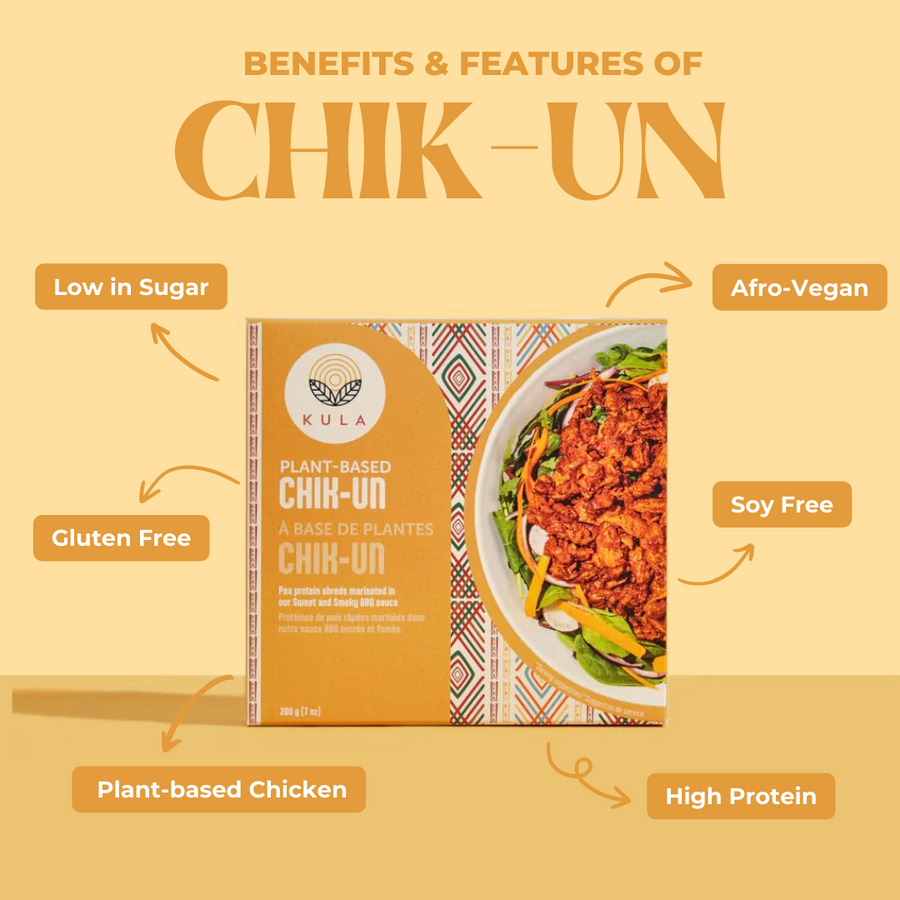How Gluten Free BBQ Sauce Elevates Your Vegan Grilling Game
How Gluten Free BBQ Sauce Elevates Your Vegan Grilling Game
Blog Article
All About Healthy Food: Advantages of Taking On Plant Based Alternatives
The conversation surrounding plant-based diet regimens has actually acquired substantial attention in the last few years. Numerous people are exploring the prospective health advantages, dietary benefits, and environmental effects connected with these dietary options. As people come to be more familiar with their food's impact on wellness and sustainability, inquiries emerge regarding the functionalities of taking on such a way of living. What particular modifications can one expect, and how might these selections reshape not just individual health but also the world's future?
Understanding Plant-Based Diets
Although lots of people associate plant-based diet plans generally with vegetarianism or veganism, these diets can incorporate a large range of eating patterns that focus on entire, minimally processed plant foods. Such diet regimens typically include fruits, veggies, whole grains, seeds, vegetables, and nuts, while limiting or removing pet products. This versatility permits individuals to customize their dietary options according to personal preferences and dietary demands. Some might take on a mainly plant-based diet regimen while still occasionally consuming meat or dairy products, usually referred to as a flexitarian strategy. The emphasis remains on integrating even more plant foods, which can lead to a diverse variety of flavors and meals. Comprehending these numerous analyses of plant-based eating is vital for valuing its accessibility and appeal in contemporary food culture.
Health And Wellness Conveniences of Plant-Based Foods
The health benefits of plant-based foods are significant, using a nutrient density advantage that sustains total well-being. Research study shows that these foods can boost heart health and play a vital function in reliable weight monitoring. By including extra plant-based options, individuals may enhance their nutritional choices and advertise lasting wellness.
Nutrient Thickness Benefit
Nutrient thickness plays a crucial duty in the health and wellness benefits of plant-based foods, making them a compelling choice for those seeking a well balanced diet regimen. Plant-based foods, such as fruits, veggies, vegetables, nuts, and whole grains, are typically rich in vital vitamins, minerals, and antioxidants while being lower in calories. This high nutrient density permits people to take in fewer calories while still meeting their dietary demands. Furthermore, these foods are packed with dietary fiber, advertising digestion health and wellness and aiding in weight management. By incorporating nutrient-dense plant-based alternatives, consumers can enhance their total wellness, support their immune systems, and minimize the danger of chronic conditions. Eventually, the nutrient density of plant-based foods underscores their relevance in a health-conscious way of living.
Heart Health And Wellness Improvement

Weight Management Assistance
In addition to promoting heart wellness, a plant-based diet plan can considerably help in weight management. This nutritional method emphasizes entire foods such as fruits, vegetables, vegetables, nuts, and whole grains, which are normally lower in calories and greater in fiber compared to animal-based items. The high fiber content assists increase satiation, reducing general calorie intake. Plant-based diets are commonly rich in necessary nutrients while reduced in undesirable fats, making it less complicated to maintain a healthy weight. Study indicates that individuals that take on a plant-based lifestyle have a tendency to have reduced body mass indexes (BMIs) and experience more successful fat burning compared to those who take in meat-heavy diet regimens. Subsequently, embracing plant-based choices is a calculated selection for effective weight management
Nutritional Value of Plant-Based Components
Plant-based active ingredients are abundant in essential nutrients, providing a diverse variety of vitamins, minerals, and anti-oxidants that add to general wellness. A contrast of healthy protein resources reveals that while animal products are frequently deemed exceptional, lots of plant-based choices supply appropriate healthy protein and various other helpful substances. Comprehending the nutritional value of these components can help individuals make informed nutritional selections.
Crucial Nutrients in Plants
Nutrient-rich active ingredients located in plants supply a varied range of essential vitamins and minerals that add considerably to general wellness. These ingredients are rich in vitamins A, C, and K, which sustain immune feature, vision, and blood clot, respectively. On top of that, plants give vital minerals such as calcium, potassium, and magnesium, vital for heart health and wellness, muscle function, and bone strength. The visibility of fiber in plant-based foods aids digestion and advertises a healthy intestine microbiome. Antioxidants, discovered generously in vegetables and fruits, help fight oxidative anxiety and decrease swelling. Furthermore, look at here now many plant foods are reduced in calories yet high in nutrients, making them an outstanding selection for those seeking to keep a healthy weight while making certain optimal nutrient intake.
Comparing Healthy Protein Resources
Healthy protein sources vary considerably in their dietary accounts, with plant-based components using distinct advantages. Unlike pet healthy proteins, which commonly consist of hydrogenated fats and cholesterol, plant proteins tend to be reduced in these undesirable elements. Legumes, nuts, seeds, and whole grains are abundant in necessary amino acids, fiber, vitamins, and minerals. Lentils supply high protein content together with significant iron and folate, while quinoa is a full healthy protein, offering all 9 vital amino acids. Additionally, plant-based healthy proteins are typically accompanied by anti-oxidants and phytochemicals that support total health and wellness. The change to plant-based protein sources not only enhances dietary intake however also lines up with sustainable nutritional practices, minimizing environmental effect and promoting long-lasting wellness benefits.
Ecological Impact of Plant-Based Consuming
As awareness of climate adjustment grows, lots of individuals are checking out lasting dietary options that can greatly reduce their ecological footprint. Plant-based eating has actually emerged as a considerable factor to reducing greenhouse gas discharges, which are largely associated with livestock manufacturing. The farming of fruits, grains, vegetables, and vegetables commonly requires fewer sources, such as water and land, compared to animal farming. Furthermore, plant-based diet regimens can bring about decreased deforestation, as less land is needed for grazing livestock or expanding pet feed. By changing in the direction of plant-based options, consumers can support biodiversity and advertise much healthier ecological communities. Overall, embracing plant-based eating not only benefits personal health and wellness however likewise represents a crucial action towards environmental sustainability and preservation efforts.
Overcoming Common Misconceptions
While many individuals recognize the benefits of a plant-based diet, several misunderstandings commonly hinder them other from totally welcoming this way of living. An usual idea is that plant-based diet plans lack sufficient protein; nonetheless, countless plant resources, such as beans, nuts, and tofu, supply adequate protein. Additionally, some assume that this diet regimen is pricey, when as a matter of fact, staples like beans, rice, and seasonal vegetables can be quite economical. One more misconception is that plant-based consuming is extremely limiting, whereas it in fact uses a diverse array of tastes and foods. Finally, many stress that a plant-based diet plan may lead to shortages, yet with appropriate preparation, people can obtain all needed nutrients, including minerals and vitamins, while delighting in a broad selection of tasty meals.
Tips for Transitioning to a Plant-Based Way of life
Making the change to a plant-based way of life can be an improving experience, though it typically calls for some assistance to browse the initial adjustments. First, individuals are urged to start slowly, including more fruits, vegetables, beans, and whole grains right into their dishes while decreasing meat and dairy products intake. Dish planning is vital; preparing an once a week menu can help alleviate the adjustment and protect against last-minute undesirable options. Discovering cooking techniques and brand-new dishes can additionally enhance the experience and maintain enjoyment regarding plant-based consuming. In addition, signing up with support system or neighborhoods can supply motivation and share valuable suggestions. Lastly, remaining educated about nutrition guarantees balanced meals, avoiding deficiencies while fostering a healthy, rewarding plant-based way of life.
Delicious Plant-Based Meal Ideas
Discovering delicious plant-based dish concepts can inspire individuals to welcome a more healthy diet regimen. One popular choice is a passionate quinoa salad, featuring cherry tomatoes, cucumber, and a tangy lemon-tahini clothing. An additional favorite is a mouthwatering lentil stew, loaded with carrots, celery, and fragrant herbs, best for a calming dinner. For breakfast, overnight oats made with almond milk, chia seeds, and covered with fresh berries give a nutritious start to the day. Furthermore, a vivid veggie stir-fry with tofu and a variety of vibrant veggies can be a quick yet pleasing dish. Ultimately, luscious avocado toast on whole-grain bread, sprinkled with seeds and flavors, uses a straightforward yet flavorful snack. These meals showcase the variety and richness of plant-based consuming.

Regularly Asked Concerns
Can a Plant-Based Diet Give Sufficient Protein?
The inquiry of whether a plant-based diet regimen can offer sufficient healthy protein is typical. Numerous resources, including beans, nuts, seeds, and whole grains, can meet healthy protein needs properly, supporting a nutritious and well balanced diet for people.
Are Plant-Based Diet Plans Ideal for Children?
The suitability of plant-based diet plans for youngsters depends upon mindful planning. Adequate nutrients need to be guaranteed, consisting of vitamins, minerals, and proteins. With appropriate advice, such diet plans can sustain healthy growth and growth in children.
Exactly how Do I Eat Out on a Plant-Based Diet plan?
Eating out on a plant-based diet includes looking for restaurants with diverse menus, requesting adjustments, and discovering vegan-friendly options. Planning ahead and connecting dietary preferences can improve the eating experience while keeping dietary selections.
What Prevail Allergens in Plant-Based Foods?
Typical irritants in plant-based foods consist of soy, gluten, nuts, and seeds - Sugar Free Sauces. People adhering to a plant-based diet ought to know these irritants and review tags carefully to prevent negative responses and assure safe consumption
Can Plant-Based Diets Assist With Weight Reduction?
Research study shows that taking on a plant-based diet regimen might facilitate weight reduction because of its normally reduced calorie thickness and greater fiber material. This mix can improve satiation, assisting individuals manage their caloric intake efficiently. Numerous people associate plant-based diets mainly with vegetarianism or veganism, these diets can encompass a wide array of consuming patterns that prioritize whole, minimally processed plant foods. Nutrient thickness plays a crucial duty in the wellness advantages of plant-based foods, making them a compelling choice for you could try here those seeking a well balanced diet regimen. Plant-based diet plans have been shown to markedly boost heart wellness, as they commonly consist of aspects that support cardio feature. In addition to advertising heart health, a plant-based diet plan can substantially aid in weight administration. A common belief is that plant-based diet plans lack enough protein; however, countless plant sources, such as legumes, nuts, and tofu, give sufficient protein.
Report this page